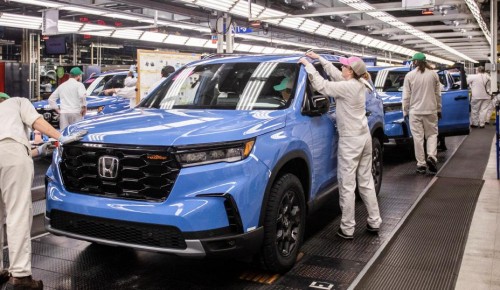Best Source for B2B Industry Trends, News and Updates

We have described how these tariffs are affecting buyers and what it could mean for your next car purchase.
Imported vehicles now include a 25% surcharge at the border. Many automakers are passing this cost to buyers. Either by higher sticker prices or reduced promotional offers. Analysts estimate buyers may see an extra $2,000–$5,000 on domestic brands built with imported parts, and up to $20,000 more for some fully imported models
Even vehicles assembled in the US are affected. American brands who rely on foreign-made parts face additional costs. For example, steel and aluminum tariffs alone are adding $250–$2,500 per vehicle and imported batteries for electric vehicles could push EV prices up by $12,000.
Tariffs hit the supply chain broadly. It is affecting replacement parts as well. Insurance industry analysis projects a 15% increase in new car prices. Adds an 8–9% bump in insurance premiums raising average annual costs by $200–$300 .
Uncertainty around when tariffs might lift has boosted sales. In March–April 2025 new-car sales surged about 20%, as buyers snapped up vehicles before further price hikes .
Experts recommend:
Buy domestic and locally assembled models as they face fewer tariff effects.
Time your purchase before automakers pass on full cost.
Consider used cars or secondhand cars as they are less affected by current import taxes
Tariffs designed to protect local manufacturing are having unintended long term effects on certain things. It is making pricier new vehicles reflecting on higher insurance with increased pressure on buyers to act quickly. However, domestic brands and pre-owned options offer relief. If you're considering a purchase, now may be the time to lock in deals, especially on the local US built models or EVs assembled stateside.
Here’s a quick look at how tariffs are affecting different types of vehicles and ownership costs. Fully imported cars are hit the hardest, with a possible 25% increase. It is adding over $20,000 to the price tag in some cases. Even domestic vehicles aren’t safe, if they rely on imported parts, buyers may face an extra $2,000 to $5,000. For electric vehicles, the cost of imported batteries could lead to a spike of over $12,000. And it doesn’t end there, rising parts prices are also pushing up insurance costs by 8–9%, adding around $200–$300 per year for drivers.
